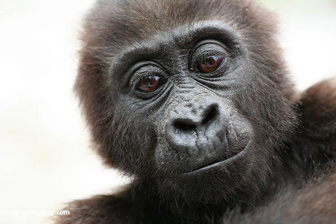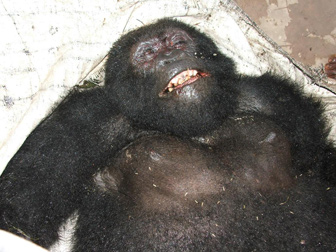U.N. sends team to investigate gorilla killings
U.N. sends team to investigate gorilla killings
mongabay.com
August 10, 2007
The U.N. said it will send a team of experts to probe the killings of critically endangered mountain gorillas in the Democratic Republic of the Congo (DRC). Four gorillas were shot “execution-style” last month, while three others have been killed so far this year. Rangers believe illegal charcoal harvesters from Goma are to blame.
“There is grave concern for the mountain gorillas as the latest killings are inexplicable,” said the UN Educational, Scientific and Cultural Organization (UNESCO), which is organizing the 10-day fact-finding mission with the World Conservation Union (IUCN). “They do not correspond to traditional poaching where animals are killed for commercial purposes. Furthermore the killings have taken place despite the increased guard patrols and the presence of military forces in the area.”
 Photo by Rhett A. Butler
|
Virunga National Park park, which sits near the border with Rwanda, supports roughly 360 of the world’s remaining 700 mountain gorillas. Another 340 mountain gorillas are found in neighboring Uganda’s Bwindi Impenetrable Forest National Park.
Gorillas haven’t been only victims of strife in the region. WildlifeDirect estimates that since the beginning of the conflict in eastern Congo nearly a decade ago, some 150 park rangers have been killed on active duty.
Conservationists say gorillas can bring benefits to the local economy. In Uganda’s Bwindi, well-trained guides lead small and carefully supervised groups of tourists who pay more than $300 each for a permit to see the gorillas. The efforts have provided some compensation for communities around the park who have had to give up their right to cut timber and harvest game from the protected forest.
“These killings are a blow for the preservation of mountain gorillas and a setback for conservation efforts at the World Heritage site,” said UNESCO.
0810wcs
